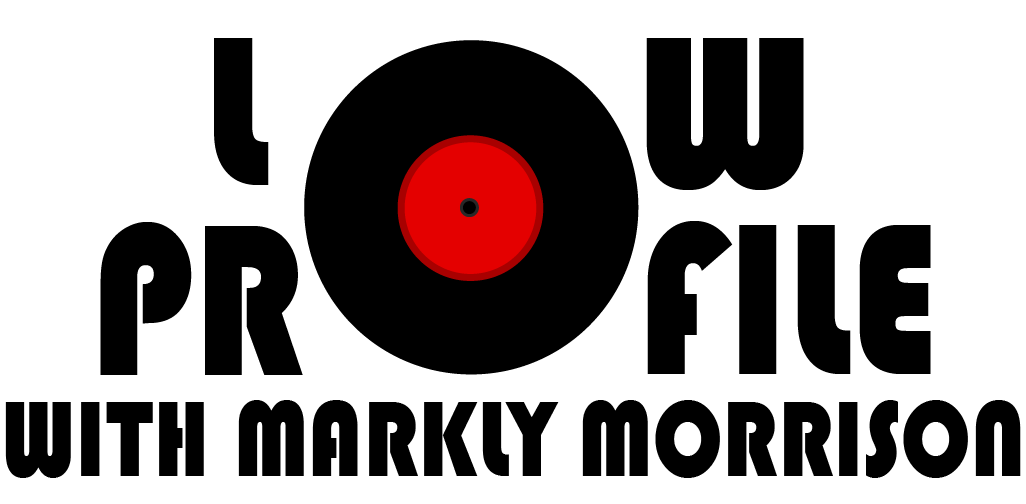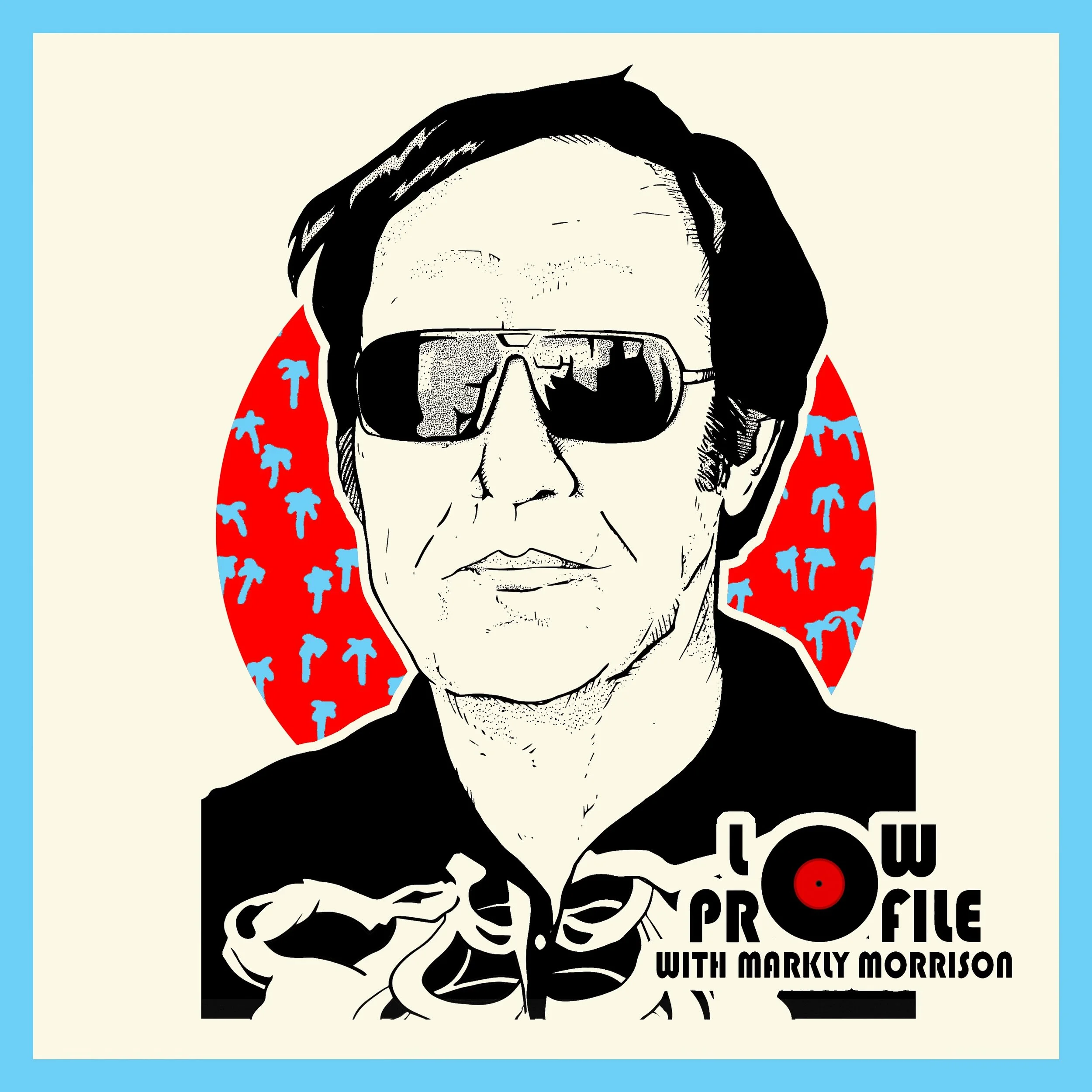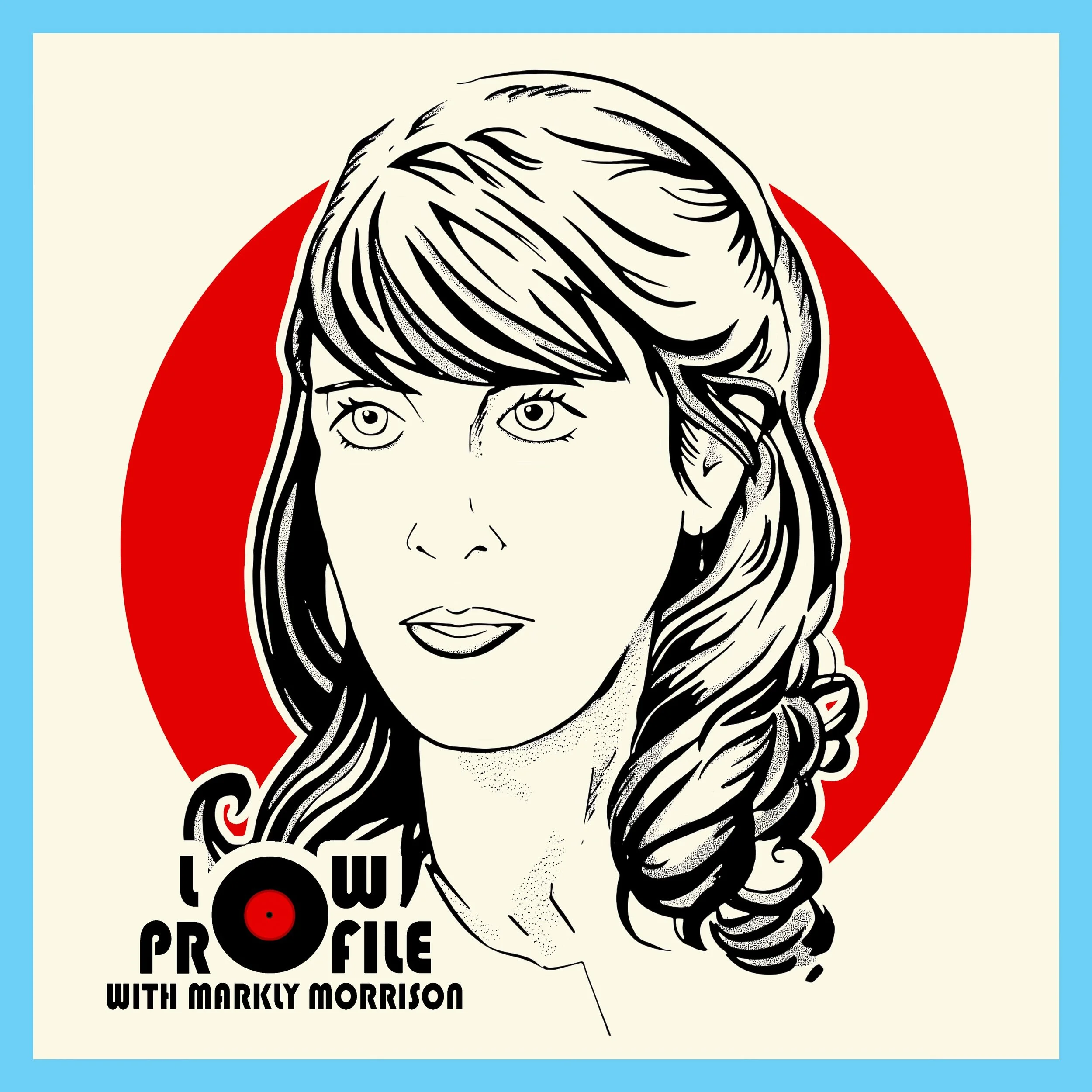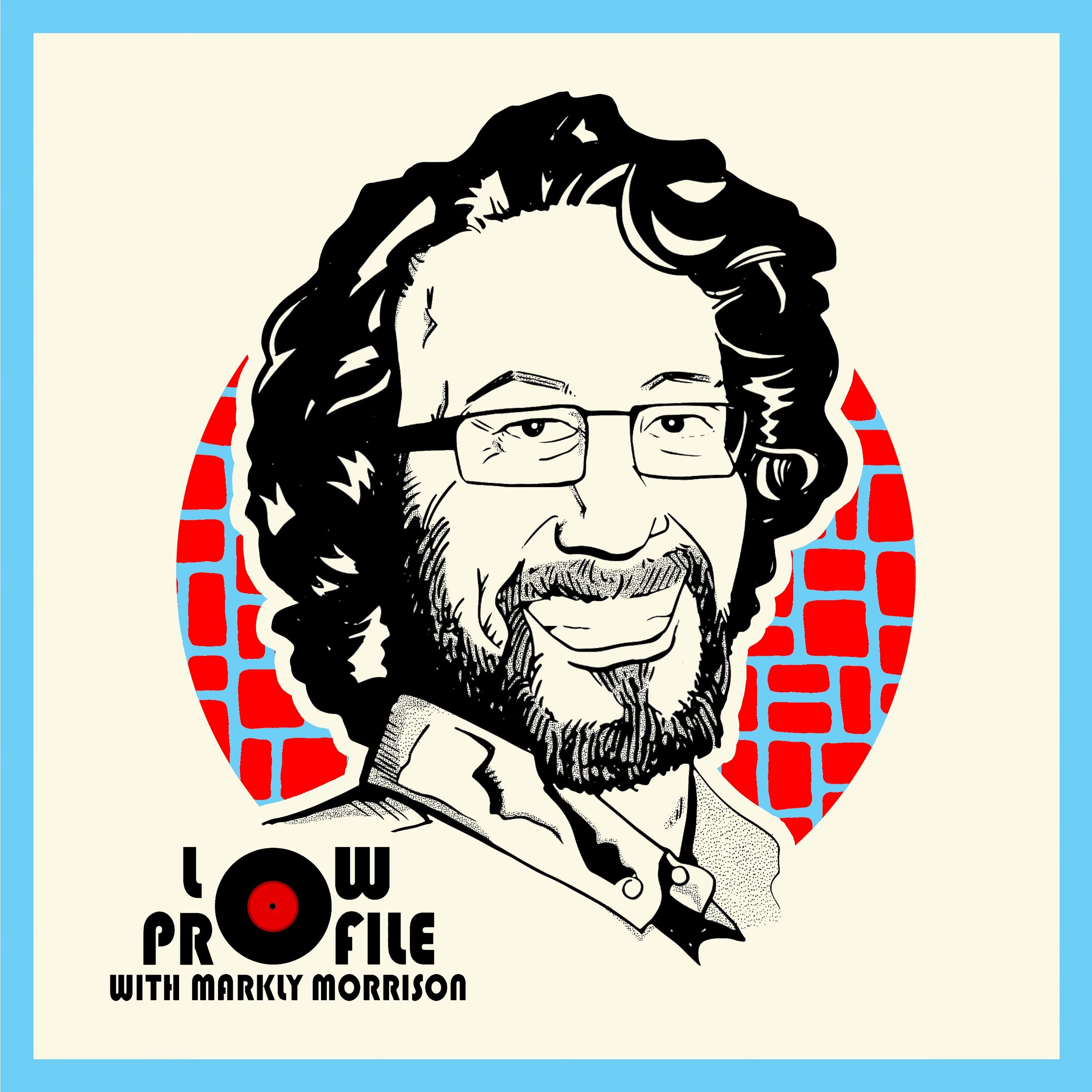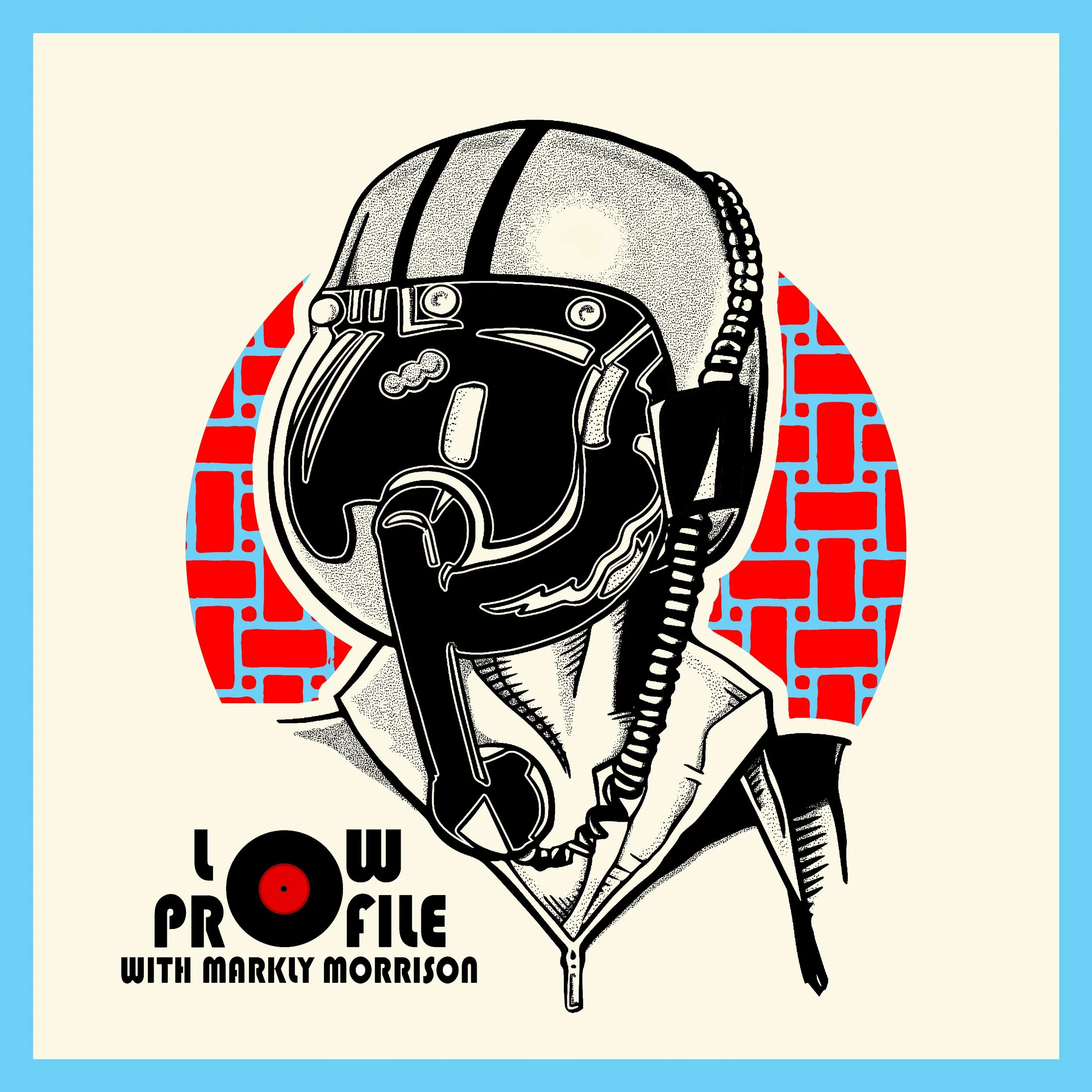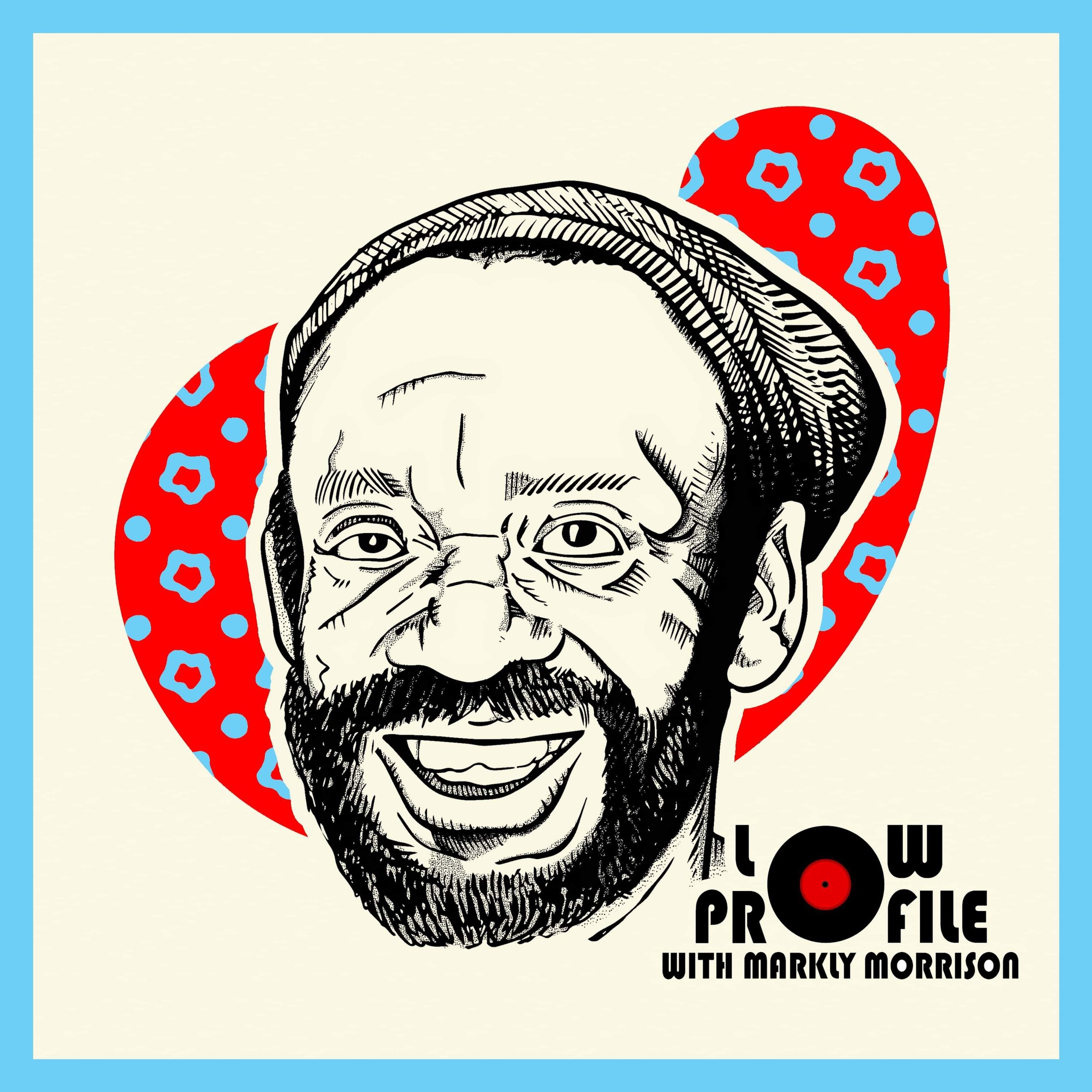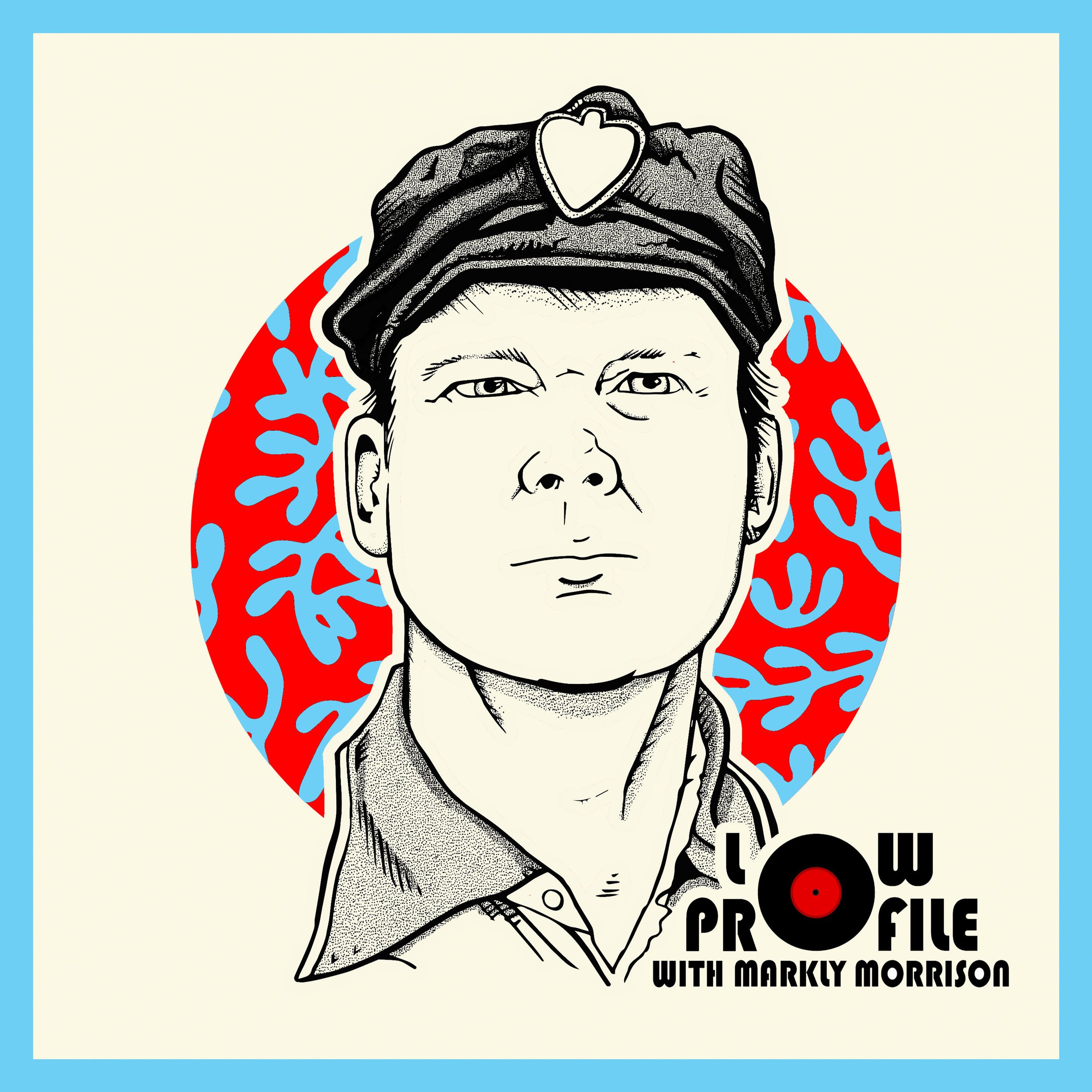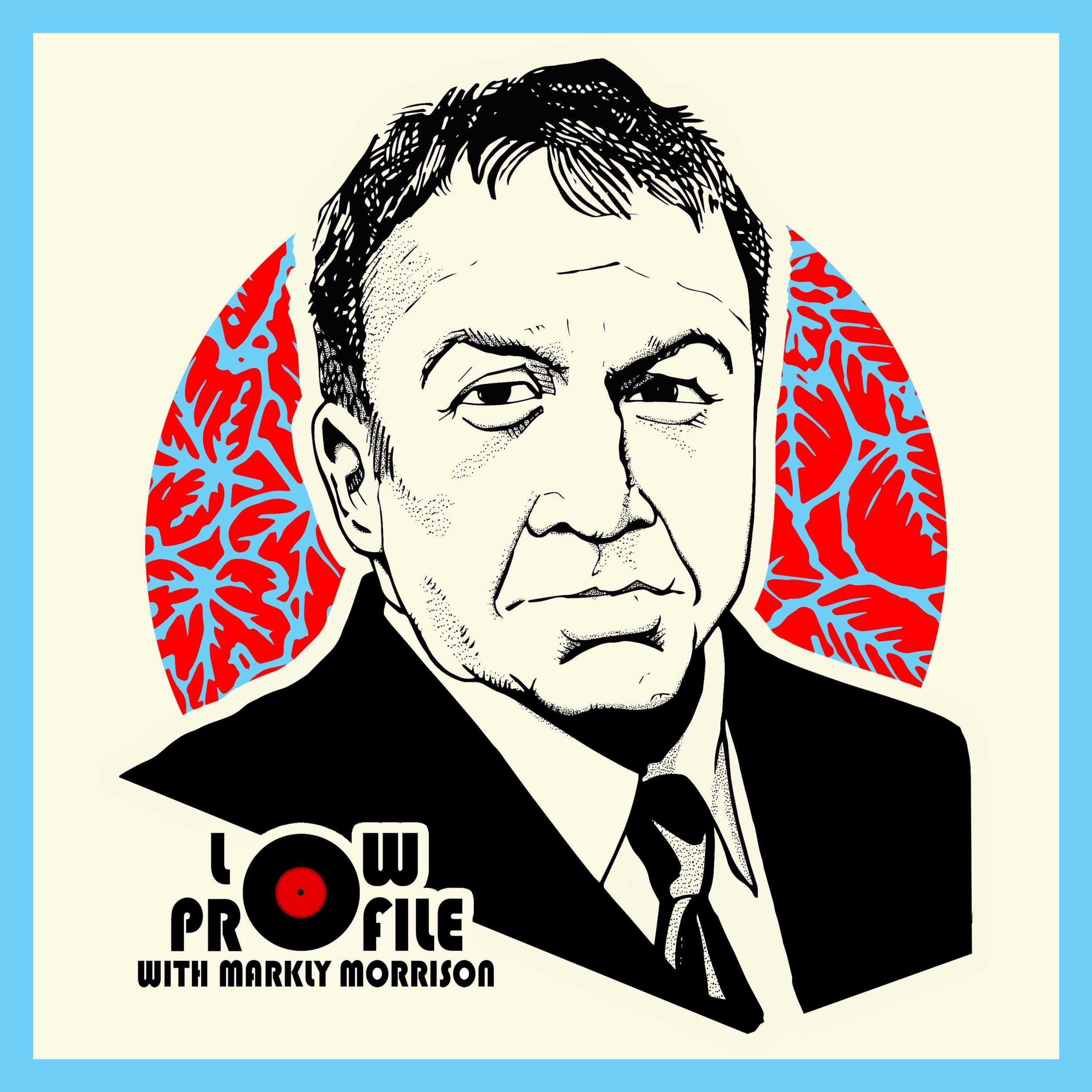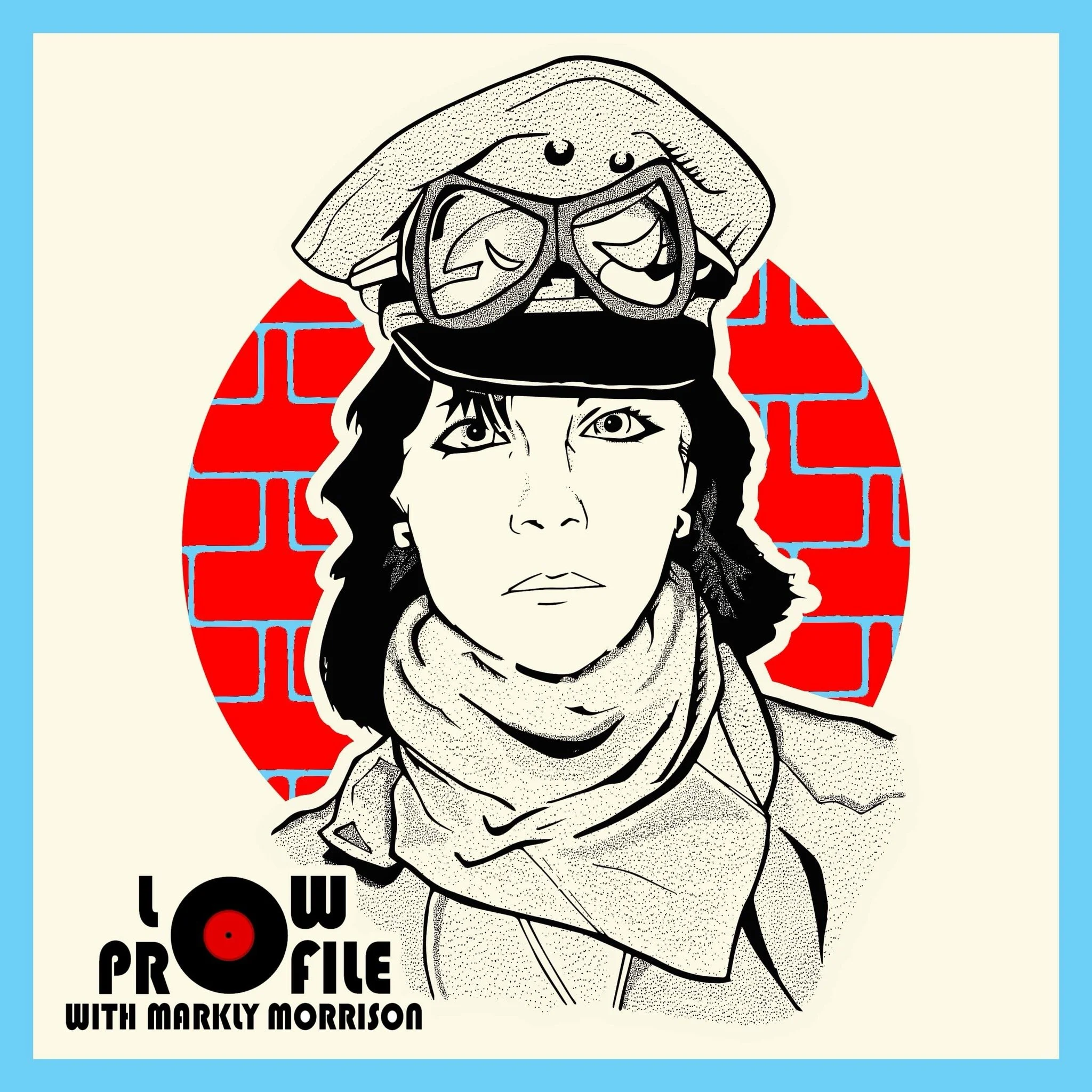87. Dick El Demasiado
A conversation with the continent-hopping originator of “cumbias lunaticas.”
Illustration by Jack Habegger
The first time I was aware that I was hearing cumbia on the stereo, it was a mixtape by a DJ named Robin Revilla. It was loaded with sound effects, samples, manipulated vocal overdubs and plenty of distortion. It struck me as being truly bizarre- and totally amazing. From there on I would buy dozens of other cumbia mixes, mostly from the 90s-2000s, seeking out the more experimental oddities in the mix. Before long, I was introduced to the music of Dick El Demasiado. The cover of the CD Sin Pues Nada has the words “cumbias lunaticas” right there on the cover. Finally, something I didn’t have to cherry pick to find music that challenged my mind. Whoever this dude was, he got it. Over the years I’ve managed to glean a bit more about him, but then I recently saw a documentary about him called Dick Verdult: It Is True, But Not Here. I had no idea what a rich history this man has in the arts- he really does it all. An international playboy, if you will. As it happens, Dick El Demasiado the musician is a mere sliver of what Dick Verdult the artist has to offer. In this conversation, we focus primarily on his music, including a previously unreleased rollicking demo. His culture-jamming tendencies are a reflection of his culturally scattered upbringing- born in the Netherlands, raised all over Europe and South America, and currently living in the Spanish town of Callanda, he’s been everywhere. In fact, as I write this introduction he’s shooting a movie in Mexico, then he’s off to Japan. When Arrington de Dionyso and I spoke to him last November, he was at home in Spain. Dick discusses the music that spoke to him in his youth, moving 20 times in his first 20 years, writing ugly poetry, creating music alone vs with his group Dick El Demasiado Y Sus Exagaderos, having an audience in a notorious street gang, that signature skeleton costume, his invented genre celulitis popular and his definition of cultural distortion. Listen to the interview below.
Low Profile season 9 finale: Dick El Demasiado
Further digging:
This just in: Dick El Demasiado's debut album No Nos Dejamos Afeitar is getting its first vinyl release in 2025 thanks to Calar Music.
Enjoy a concert video featuring Dick El Demasiado doing his solo “celulitis popular” method of performance:
Here is the documentary about Dick Verdult (highly recommended)
86. April March
Elinor Blake, better known as April March, dives in with Markly to look back on her illustrious career and give a sneak preview of things to come.
Illustration by Jack Habegger
If there was such a thing as the American ambassador to 60s French Pop it would have to be Elinor Blake, better known as April March. Elinor began her professional career in the world of animation back in the early 80s before she took on the April March rock and roll alter-ego. You’ve probably heard her music over the last few decades classic cartoons like The Ren and Stimpy Show and I Am Weasel and cult favorite films including But I'm A Cheerleader and Death Proof. She’s rubbed shoulders with all kinds of heavy figures in the entertainment world, including Ronnie Spector, Pee Wee Herman, Frank Zappa, Maya Rudolph, and numerous figues in classic and contemporary French pop. I spoke with Elinor in the Summer of 2024 about her storied career, starting with a sneak preview of her upcoming 2025 album Villerville.
85. Psychic Temple
Chris Schlarb discusses Psychic Temple and his many other production endeavors on location in Long Beach, CA.
Portrait of Chris Schlarb by Jack Habegger
Psychic Temple is the extended-family project of Chris Schlarb, the proprietor of the retro-chic Big Ego studio in Long Beach, California. Chris is an old friend of mine, going back to the turn of the century when I lived for a brief period time in Long Beach. This episode is being released shortly after the announcement of the dissolution of Psychic Temple, which is addressed during a quick follow-up call at the top of the show. This episode was engineered by Chris Schlarb at Big Ego in the summer of 2023. Chris shares with me about his musical background, his creative endeavors, and some of his work-for-hire as a record producer, including the final Psychic Temple album, Doggie Paddlin’ Through the Cosmic Consciousness.
84. Bob Log III
Hilarious life lessons from the bastard son of Evel Knievel and Hound Dog Taylor.
Illustration by Jack Habegger
Bob Log III is, as you might have gathered, a one man band from Tuscon, Arizona. He tends to tour at least half the days of the year all over the planet, bringing a party, and doing it all by himself, ever since his old band Doo Rag broke up while on tour with Ween. Nowadays, when he’s not on the road, Bob lives in Australia. If you catch him on the tour in your area, there’s balloons, an oversized rubber duck, a boat, and even rides! No wonder this guy’s side hustle is writing personalized birthday party songs. He regales us today with tales of how he developed his solo act, why it’s hard for him to collaborate, his misadventures in Sweden, being hired to play a song he didn’t know for a bunch of metal musicians, and how he challenges himself to keep the party level in the red. He’s also got some surprising health tips for touring performers. I spoke to him on the phone, presumably the one protruding out of his motorcycle helmet.
Here’s a delightful animated short Andrew Ebright made for one of Bob’s stories on today’s show:
83. African Head Charge
Master percussionist Bonjo Iyabinghi Noah shares about his youth in Jamaica and over four decades of creating influential, experimental dub music.
Illustration by Jack Habegger.
Bonjo Iyabinghi Noah is the percussionist and vocalist behind African Head Charge, the experimental dub project he co-founded with legendary studio wizard Adrian Sherwood in the late 1970s. With dozens of albums to his credit, he’s been established as an influential and singular performer with a sound all his own. Today I’m speaking with Bonjo about how he found his musical and spiritual calling in the Poco churches of Jamaica in his youth, how an encounter with Fela Kuti changed the course of his life, his collaborations with classic reggae and soul artists like Desmond Dekker, Prince Far I, Creation Rebel and the Foundations, how he turned an experimental studio project into a large live ensemble, and insights into African Head Charge’s latest album, A Trip To Bolgatonga on Adrian Sherwood’s On-U Sound label.
82. Danielson
Daniel Smith walks us through his interdisciplinary artistic practice, three decades of Danielson, plus a glimpse into the group’s future.
Illustration by Jack Habegger
The band Danielson started when Daniel Smith worked with his siblings to satisfy a requirement for his senior thesis three decades ago. If you’re not familiar with their music, one thing you’ll notice throughout today’s show is that nobody else sounds anything like them. Daniel and I are talking today about the thirty-year evolution of the group, why he sings the way he does, how the group incorporates visual art into their work, producing records for others (including friends of the show Soul-Junk and Hermit Thrushes), creating the soundtrack to the film Electric Jesus, a new album in the works via Joyful Noise Recordings, collaborations with Half-Handed Cloud, Kramer, Jad Fair and others. Since recording this interview, Danielson has released a short film for their song “Come and Save Me” directed by Chris White that stars Fred Armisen and features previously unused lyrics by the late Larry Norman. Daniel spoke to me from his studio in New Jersey. Listen now:
More from Danielson:
This 2006 feature length documentary explores the group’s history up to the point of its creation, and the rising star of their good friend and collaborator Sufjan Stevens.
“Come and Save Me” starring Fred Armisen, dir. Chris White:
Danielson’s first music video from 1995:
Danielson Artist Enabler Club:
81. Mayo Thompson
The Red Krayola founder speaks about his latest novels, favorite hip hop artists, growing up in Texas, and his varying methods of creative process over the past six decades.
Illustration by Jack Habegger
Mayo Thompson is the founding member of The Red Krayola, an experimental rock group that has existed in various formations since 1966. He’s collaborated with The Raincoats, Pere Ubu, and the Fall as a record producer, is an active visual artist, and has recently published his second novel, “After Math,” a sequel to 2020’s “Art, Mystery” (both available via Drag City Publishing). Mayo joins Low Profile to discuss the unconventional processes of several Red Krayola albums, his lone solo album “Corky’s Debt to His Father” and its recent live embodiment, his experience as a writer, a long-standing collaborative relationship with the conceptual collective known as Art and Language, and working with others including Lora Logic, featured on the previous episode. The interview is conducted by a panel featuring returning cohosts Dylan Shearer and Jack Habegger teaming up with Markly to tackle this heavyweight guest.
unedited tape of this episode (an hour longer) is available for people supporting this show at patreon.com/lowprofile
80. Lora Logic
Laura Logic from X-Ray Spex and Essential Logic delves into her rebellious beginnings, her deep connection with Krishna teachings, and how it shaped her musical journey.
Once upon a time in England, a teenager named Susan Murphy brought her saxophone to audition for a new punk band called X-Ray Spex- a group that was not looking for a sax player. Despite that fact, she made the cut, and like her fellow new band mates, she adopted a stage name: Lora Logic was born. When her tenure with the band was unexpectedly cut short, a friend with a studio encouraged her to forge her own path, and in 1979 the underground scene was introduced to her next project Essential Logic- a groove-laden and experimental sort of progressive punk rock. Somewhere along the way she became a Krishna devotee and let her music career take a back seat, re-emerging on occasion with a new set of songs. Nearly 50 years after it all began, Essential Logic is back with a new album called “Land of Kali,” and a box set called “Logically Yours.” Dylan Shearer co-hosted this episode, and we spoke with Lora at length about everything- how it all began, how things have changed, her nuanced collaborative relationship with X-Ray Spex vocalist Poly Styrene, why she plays the sax, her travels to India, and collaborating with her daughter on the latest iteration of Essential Logic. Lora also shares a favorite vegetarian recipe.
79. Death
Founding member of Death, Bobby Hackney, shares about the group’s evolution and excursions. His son, Julian, helps introduce the show.
About fifty years ago, three brothers started a garage band in Detroit. Their sound was forward-thinking and ferocious, and their band name – Death – played no small part in killing their music career. That didn’t stop them from doing what they loved, in private, where they amassed dozens of songs that have yet to see the light of day. Their debut album For the Whole World To See was recorded in 1973, but was never released until 2008 when one of the singer’s sons discovered the group’s lone single. Since then, a documentary has been made about the group, and several more albums have been released. Today I’m speaking with vocalist Bobby Hackney about the group’s genesis, reformation, and the music he and his brothers made during the nearly three-decade interim. He also shares about his love for reggae music and his new book Vermont Reggae Fest - The Power of Music. Death has a new split single on Drag City Records with the band Rough Francis. That group’s guitar player, Julian Hackney, helps introduce today’s episode.
78. Vashti Bunyan
Vashti Bunyan joins Markly to discuss her re-emergence into the music world, and her memoir “Wayward.”
illustration by Jack Habegger
When I started this show five years ago, I made a short list of artists I wanted to feature. Near the top of that list was the British musician Vashti Bunyan. Vashti Bunyan released her beautiful album “Just Another Diamond Day” in 1970, and it was almost immediately buried in time.
She’d had her fair share of disappointment in the music business and walked away from it altogether, until some three decades later when people like me discovered her music for the first time. Suddenly, Vashti was in demand, and her music career was back on track. In her recent memoir, “Wayward” from White Rabbit publishing, she chronicles her early days in the pop music world, collaborations with members of The Rolling Stones and Led Zeppelin, her unbelievable horse and wagon journey throughout the UK that inspired her first album, and her unlikely return to the music world. Vashti speaks with me today from her home in Scotland.
This episode was edited by Rose Nielsen.
More from Vashti Bunyan:
